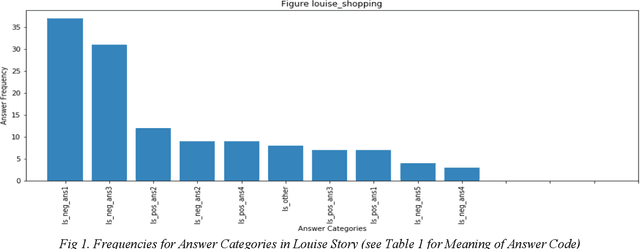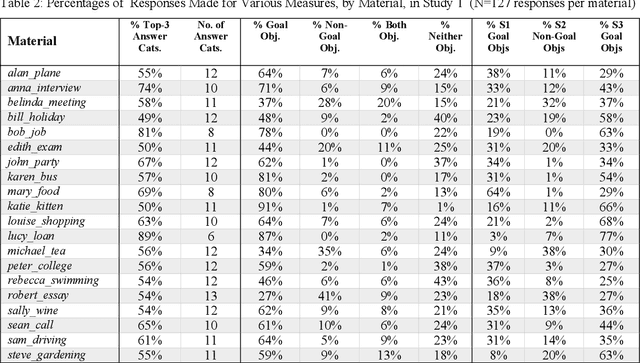Kathleen Campbell
The Unexpected Unexpected and the Expected Unexpected: How People's Conception of the Unexpected is Not That Unexpected
May 17, 2019

Abstract:The answers people give when asked to 'think of the unexpected' for everyday event scenarios appear to be more expected than unexpected. There are expected unexpected outcomes that closely adhere to the given information in a scenario, based on familiar disruptions and common plan-failures. There are also unexpected unexpected outcomes that are more inventive, that depart from given information, adding new concepts/actions. However, people seem to tend to conceive of the unexpected as the former more than the latter. Study 1 tests these proposals by analysing the object-concepts people mention in their reports of the unexpected and the agreement between their answers. Study 2 shows that object-choices are weakly influenced by recency, the order of sentences in the scenario. The implications of these results for ideas in philosophy, psychology and computing is discussed
 Add to Chrome
Add to Chrome Add to Firefox
Add to Firefox Add to Edge
Add to Edge